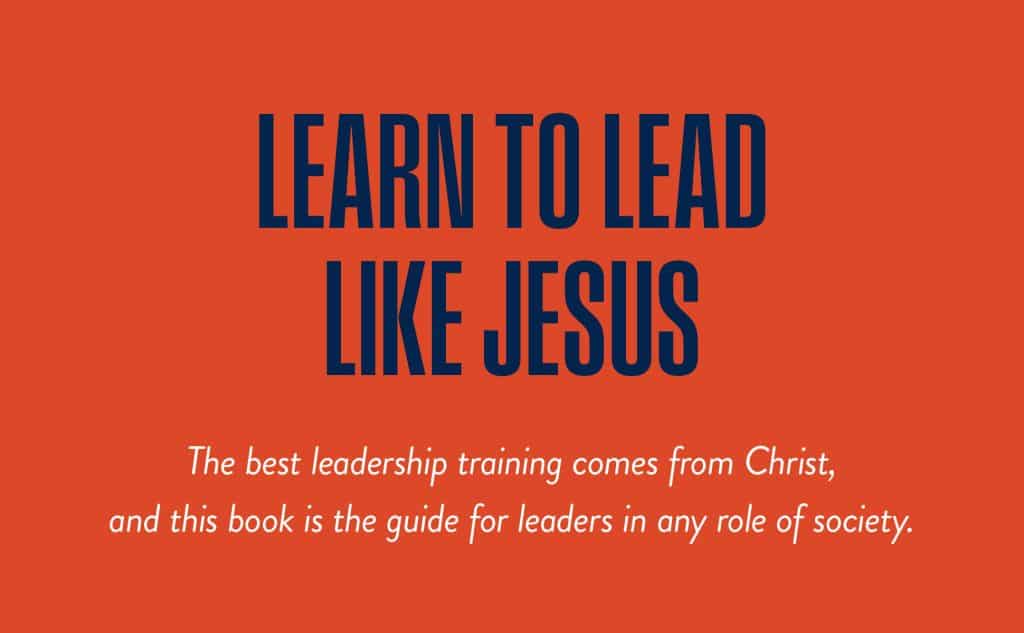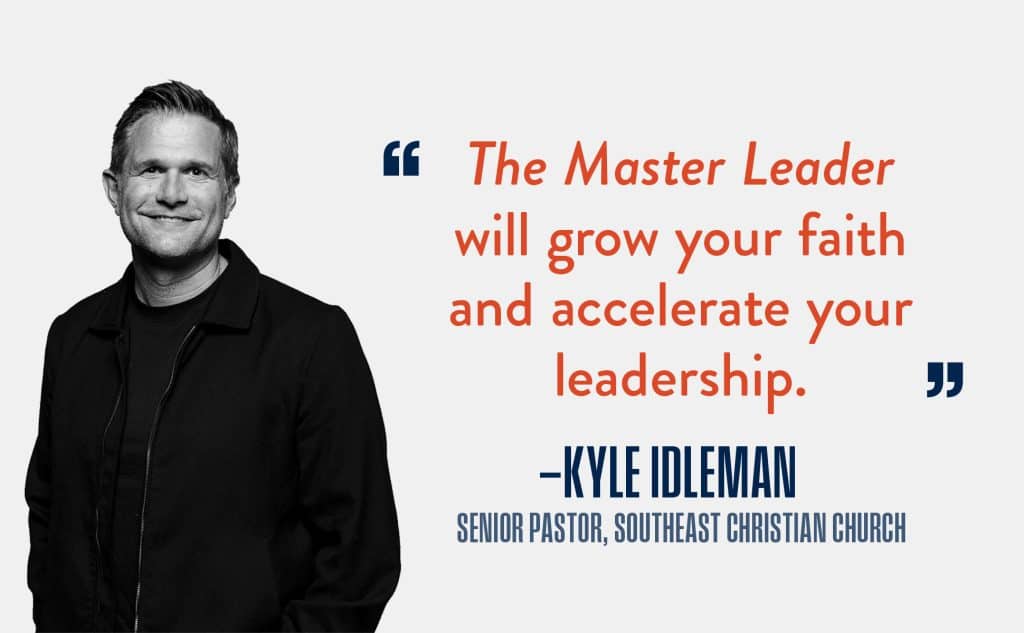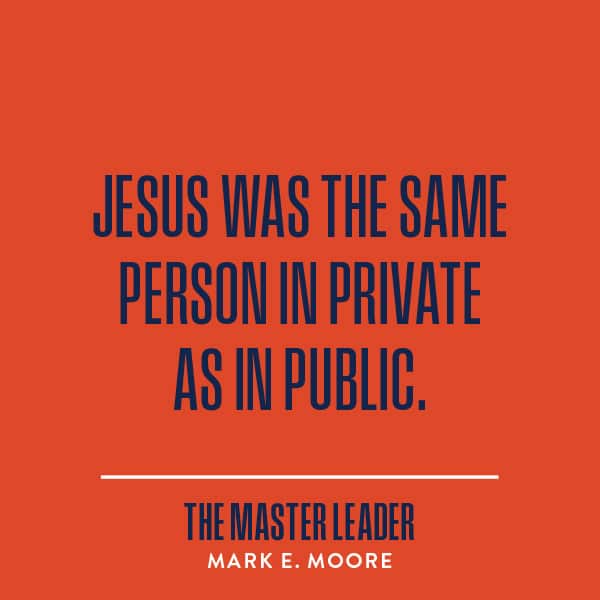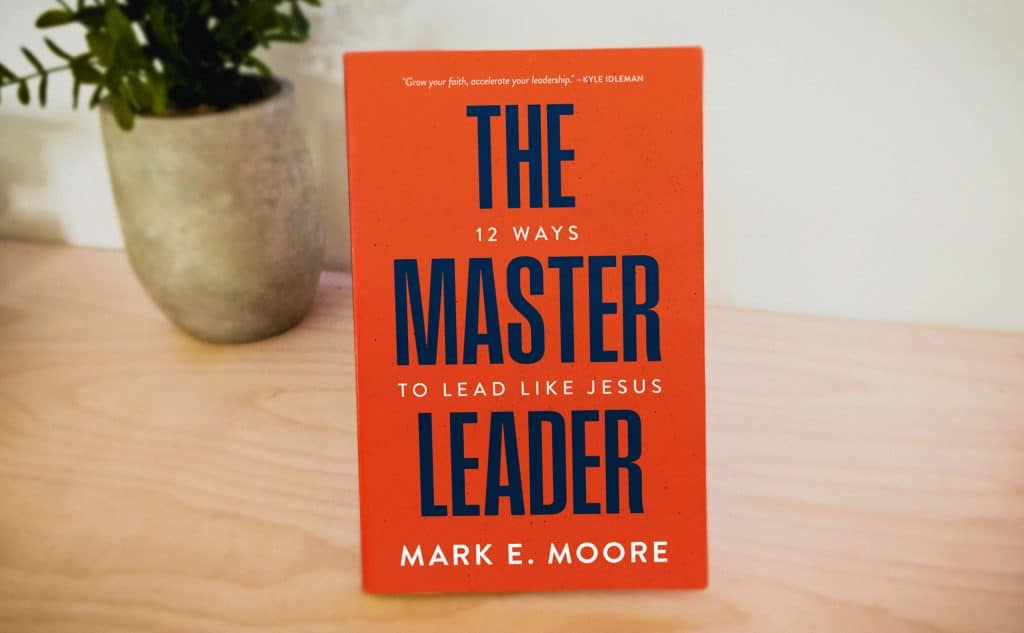Consistency Is Key for Leaders
Consistency is key to leadership. Build trust and character through habits like prayer, rest, and follow-through. Learn practical steps to lead effectively.
Listen to this episode above, Apple Podcasts or Spotify.
This is a modified excerpt from Chapter 4 “Consistency” of Mark E. Moore’s book, The Master Leader.
Purchase The Master Leader here.
Lance Armstrong won the Tour de France a record seven times. This alone would make him one of the greatest athletes in human history. He was a legend. Then add to that the fact that he accomplished this feat after beating cancer. However in 2012, the U.S. Anti-Doping Agency found Armstrong guilty of using performance-enhancing drugs. He was stripped of his titles and banned for life from competitive cycling.
Elizabeth Holmes, founder of Theranos, a medical tech company, was once hailed as the youngest female self-made billionaire. But in 2015, the Wall Street Journal exposed her fraudulent claims, and her company’s lab was shut down. Theranos dissolved in 2018, and Ms. Holmes was indicted for fraud.
Ted Haggard was a nationally known pastor and president of the National Association of Evangelicals. He was a leading voice opposing same-sex marriage, until 2006, when allegations came to light that he had been engaged in misconduct with a male escort, compounded by drug use. Haggard’s downfall destroyed his leadership legacy.
Bill Cosby, once celebrated as “America’s Dad” for his role in The Cosby Show, faced numerous allegations of sexual assault spanning several decades. In 2018, Cosby was convicted of three counts of aggravated indecent assault. He ruined his reputation as a pioneering African American comedian and a moral voice for family values.
The most difficult leadership challenge is leading yourself. Whether in sports, business, religion, or entertainment, a lifetime of public success can be destroyed by private indiscretions. A Master Leader sustains trust through consistent private habits that build character over time. Jeff has some practical experience to share with us about how to build such habits.
Purchase The Master Leader here.
Consistency Key #1: Build Habits That Grow Your Character
Healthy teams require us to be able to rely on one another, to know we can count on one another through thick and thin, and to create that reliability requires us as leaders to be consistent in how we lead. Leadership consistency creates a sense of security for our teams, a North Star if you will.
As leaders, we know we must exercise many important transactional habits to be successful, such as goal setting, time management, and meeting efficiency. Much has been written on these habits, but I’m focusing on three key habits that aren’t often talked about in today’s leadership material. These are a few habits we think are key to being dependable, consistent leaders: decision-making, follow-through, and feedback:
1. Decision-making.
Consistent leaders make clear and concise decisions. We make dozens of decisions each day. As leaders we have people watching and waiting for each decision so that they can take subsequent action. If we are unable to make clear and concise decisions, we risk paralyzing our team (and bottlenecking the project) as they wait for direction and clarity to avoid rework or the risk of moving in the wrong direction.
When I first became a CEO, I used to struggle with my team reacting too quickly any time I stated an opinion or view on a certain subject. I thought I was just brainstorming with them or helping them process out loud, but I came to find out they were hanging on tightly to every word I said. As Master Leaders, we must remember that our team has immense respect for us. They want to do great in their roles, and that means they are actively listening to not just what we say but how we say it. We need to be very clear when we are simply giving our opinion versus making a decision.
2. Follow-through.
For some of us, follow-through is as natural as breathing air. For others, like me, it requires intentionality and accountability to ensure it happens. Look, no leader is great at everything. We can compensate for our weaknesses by relying on systems, processes, and technology as scaffolding for areas that don’t come naturally for us. Notifications, alerts, and assistants can ensure we follow through on our commitments and keep the trust we worked so hard to earn.
If we make a decision and don’t execute accordingly, our team can quickly lose confidence in us as leaders. They may perceive it as an issue of integrity when, in fact, it’s often just forgetfulness or bad follow-through. We truly need to strive for a zero-gap approach to follow-through. If for some reason the decision or commitment needs to change, we need to be diligent and circle back with the team, letting them know both the change in direction and the “why” behind the change. Even though as leaders we are expected to be visionary, constantly looking at the future, if we don’t follow through on yesterday’s decision, we will create confusion and chaos for our team.
3. Feedback.
The other habit that creates consistency is the ability to be direct at giving and receiving feedback. Not surprisingly, just like follow-through, speaking straight to others is a habit that’s easy for some, but difficult for most leaders. The key to giving and receiving feedback is letting our teams know that, when needed, we will give them honest, meaningful feedback. As hard as it may be to make a habit of giving consistent feedback, it’s important that our team knows that they’re not wandering aimlessly—that they can count on us to give them the necessary feedback to help them stay on course and be successful in their role or project. The more we exercise our courage muscle, the stronger it gets, and the more consistent we will be at providing meaningful feedback.
Whether we are leading in the marketplace or in ministry, learning how to say what needs to be said is an attribute that will serve us well throughout our leadership journey.
I was fortunate to begin my career at a large Fortune 100 company that made speaking straight a survival tactic, not a luxury. If you didn’t get good at speaking straight in the feedback you gave to others and in receiving direct feedback, you quickly found yourself struggling and wondering if you would survive over the long haul.
As I transitioned into ministry from the corporate world, I found the situation to be quite different. Most people are filled with an abundance of grace and find it very difficult to speak straight with others. I believe we need honesty as much, if not more, in ministry. Jesus was very good at speaking straight, and he did it with love and grace. He set the example for us to do the same. Providing feedback is easier than receiving it. Both habits are required to be a Master Leader.
Purchase The Master Leader here.
When you receive feedback, try this helpful hack: create space. Create enough space to allow yourself to respond—not react—to the feedback. We can immediately take a defensive posture to feedback and begin to justify or prove our rationale for our actions or position. Even the age-old idea of counting for a few seconds before speaking allows you to create space to give a more thoughtful response to feedback versus reacting out of emotion or defensiveness. When our teams know we will consistently and fairly give them feedback, and they can give us feedback that we will receive in a measured and consistent way, we provide a level of consistency that allows our teams to know they are heading in the right direction. We are there to make them successful.
Consistent character is always forged over time through the discipline of habits. As Jim Loehr and Tony Schwartz say, “Look at any part of your life in which you are consistently effective and you will find that certain habits help make that possible.”[1] There is no magic wand to wave, no secret sauce. Character comes through the monotony of many small decisions stacked on each other. A leader’s habits in the shadows ultimately evolve into character in the limelight. As the old adage says, “Your competency will take you only as far as your character will sustain you.” Competency is seldom the leader’s lid; character is.
With Jeff’s advice in mind, let’s examine two of Jesus’ most obvious habits to learn how to build our character. This is not to say that your habits must identically match Jesus’ habits. But without character-forming habits, you will limit your leadership. We will begin with Jesus’ most predominant habit.
Consistency Key #1: Build Your Prayer Life
The more popular Jesus got, the more he retreated in prayer: “Now even more the report about him went abroad, and great crowds gathered to hear him and to be healed of their infirmities. But he would withdraw to desolate places and pray” (Luke 5:15–16). Why did he retreat as his popularity grew? Because popularity, power, and fame are seductive. Jesus knew that. It seems that prayer was his defense against the onslaught of leadership influence. Without the consistent practice of prayer, few of us will survive the seduction of power.
We can draw three key insights from Jesus’ well-documented prayer life:
1. Intimacy with God.
Topping the list is Jesus’ unprecedented relationship with God. In every recorded prayer of Jesus, he addressed God as “Father.” The only exception is the quote from the cross (Ps. 22:1): “My God, my God, why have you forsaken me?” His words show us the intimate relationship of Father and Son. In a sense, this takes us back to our very first lesson on leadership—our leadership begins with our identity as God’s children. Habitual prayer is a primary tool for building our identity.
2. Major Events.
A second insight we can learn from Jesus’ habit of prayer is his dependence on prayer before every major event of his life. He prayed before his baptism (Luke 3:21–22) and before feeding the 5,000 (Luke 9:16) as well as the 4,000 (Matt. 15:36). He prayed before walking on the water (Matt. 14:22) and preceding Peter’s great confession (Luke 9:18). He prayed all night before choosing the Twelve (Luke 6:12). He prayed when he was transfigured (Luke 9:29), before raising Lazarus from the dead (John 11:41–42), and before instituting the Lord’s Supper (Matt. 26:26–27). His most extended recorded prayer came before he went to the garden of Gethsemane (John 17), and he continued to pray in the garden before his arrest (Matt. 26:36–46). He prayed from the cross three times before his last breath (Luke 23:34; Matt. 27:46; Luke 23:46).
For Master Leaders, prayer should be our first response, not our last resort. Admittedly, I often find myself running to God only after I run out of options. But to truly imitate Jesus’ prayer life and benefit from intimacy with the Father, our prayers must be as robust in the mundane as in the chaotic. If I were to be honest, this is my least-developed spiritual discipline, with the greatest potential upside. Because leaders master self-reliance and personal responsibility, prayer is a commonly neglected habit for leaders. We want to depend on ourselves rather than on the Father. But if we could learn to depend on God as we expect others to depend on us, our prayer lives could flourish. And Jesus provided us a model prayer to do just that.
3. Modeling.
Jesus was so adept at prayer that his disciples asked him to teach them to pray (Luke 11:1). This model prayer, however, is not merely for us to get something out of God that we don’t currently have. Instead, it may be the tool God uses to get something out of us that he currently doesn’t have. With that in mind, what benefits can Master Leaders derive from imitating Jesus’ consistent prayer life?
A robust awareness of prayer’s pragmatic advantages would motivate more leaders to come to God first. Prayer is a powerful tool for seeking God’s counsel. It is a source to petition him for our needs. It empowers us to complete the mission God gave us. But you already know that, right? While all of these advantages should be sufficient motivation to practice prayer, in my experience, it is a radically underutilized resource for Christian leaders.
Purchase The Master Leader here.
Consistency Key #3: Learn to Rest Like Jesus
Our greatest creativity doesn’t come during activity. It comes in the margins. When I was a college professor, my creativity was shot in May at the end of a busy school year. After a couple of weeks of rest, however, I was able to write a half-dozen messages for the summer camps in just a few days. In my current role as teaching pastor, my day off is Friday. Saturday afternoon and Sunday are a marathon. If you were a fly on the wall in my home, you would be able to tell if I missed a day off. I’m less engaged with my bride and more irritated with traffic. Creativity, relationships, and triggers are not a bad barometer for how well we are doing with rest. This Sabbath principle is now widely accepted in secular leadership research. Jim Loehr and Tony Schwartz address workaholism as an addiction: “Unlike most addictions, workaholism is often admired, encouraged and materially well rewarded.”[2]
The biblical principle of Sabbath states that we will achieve more in six days with God’s rest than in seven without it. When we submit our days and dreams to God, it’s as if we’re placing them on the altar of his will. This weekly rhythm of consistent rest and worship marked Jesus’ life. Luke writes: “And he came to Nazareth, where he had been brought up. And as was his custom, he went to the synagogue on the Sabbath day, and he stood up to read” (Luke 4:16). Jesus knew he needed the punctuation of rest and worship in his week.
It’s interesting that Jesus ran afoul of the Pharisees more for “violating” the Sabbath regulations than anything else. Seven different times, he created controversy on the Sabbath (Matt. 12:1–8; Mark 3:1–6; Luke 13:10–21; 14:1–24; John 5:10–18; 7:21–24; 9:1–7). It wasn’t that he neglected Sabbath rest. It was that he didn’t submit to the Pharisees’ onerous rules of how one should rest. The issue was important enough to fight about because, in Jesus’ own words, “The Sabbath was made for man, not man for the Sabbath” (Mark 2:27).
Purchase The Master Leader here.
The Power of Sabbath
Part of the power of Sabbath is it puts us in a position to manage the stress of the work God has called us to. I see this most clearly in how I handle criticism. Jesus’ model, again, is incredibly insightful. He was criticized for all sorts of things: fraternizing with sinners (Mark 2:15; Luke 15:1–2; 19:1–10), not following proper protocol for ritual cleansing (Mark 7:1–23; Matt. 15:1–20), claiming to be divine (John 10:33), and being “demon-possessed” (Mark 3:21–22; John 10:19–20), as well as for threatening the temple, not paying taxes, sorcery, and allowing women to follow him. But more than anything else, he was criticized for not following Sabbath regulations.
I find this interesting because it was Jesus’ life of prayer and practice of Sabbath that empowered him most to deal with criticism. The brutal truth is that there’s no way leaders will avoid criticism. It just comes with the territory. But how we handle it can reveal to others the quality and consistency of our character.
Here are three practical steps to manage criticism in a way that cultivates consistency of your character—proven steps that work for me when I encounter criticism.
1. Recognize that seldom is the issue the real issue.
People who criticize and complain often are dealing with unseen pain that you likely have nothing to do with. In my first ministry, there was a woman who called me like clockwork every other month just to cuss me out for about thirty minutes. It was brutal on a young pastor. Around the third time, I called her back about a week after the incident and asked, “This seems to be a regular pattern. Am I really upsetting you regularly?” Her answer took my breath away. “Oh no,” she admitted. “It’s not really about you at all. I just have so much pain in my family, and sometimes I get so mad at God. But I can’t kick him. So I take it out on you.” Well . . . good to know!
2. People tend to criticize what they don’t understand.
When you explain the “why,” many can adjust to the “what.” Be careful here, though, because criticism often comes through email or social media. If we’ve learned anything over the last two decades, we’ve realized it’s just impossible to diffuse dissent online. Nor do you need to. The revolving news cycle and the pubescent attention span of social media are your friends. Online sparks seldom turn into flames unless you fan them. Occasionally, they will take on a life of their own, but that’s rare at the local level. Email is a slightly different story. Sage advice on responding to email is the three-sentence rule:
- Thank you for sharing your perspective.
- I have read your opinion and have taken it into consideration.
- We are grateful for your reaching out to try to make us better.
Do not defend—whatever you do. The more words you write, the more responses you’ll receive. The cardinal rule is that email begets email. Unless you’re willing to meet face-to-face, email warfare is toxic.
3. The more a digitally delivered criticism triggers you, the longer you should wait to respond.
Twenty-four hours is the minimum gestation period for a response. If you realize you’re triggered, take two or three days. If someone replies with a secondary email of complaint, it will sit in my inbox for a week—if it ever gets a response. There will be no third email. If you’re wondering whether a delayed response will just push people away, the answer is yes, exactly. That’s the point. Your mission will grow by your consistently following a higher calling, not responding to a lower criticism.
Balance and consistent rhythms of worship, rest, and work are essential for the consistent life that marks a Master Leader. When one area of our life is out of balance, it will impact the consistent habits in other areas of our life. Rest and worship are the fuel for spiritual and emotional health.
Our day should be punctuated with work, home, and sleep. Our week should be punctuated with work, rest, and worship. Our year should be punctuated with celebrations. The Jews call(ed) them festivals; we might call them “holidays.” But the purpose is the same—devoted time to realigning the priorities of God and family above your work and career. With a biblical balance of rest and worship, we can work more productively.
Summary
Consistency is key to leadership longevity. That’s why the boring habits in the shadows are so essential to ensuring and securing our public legacy. Private practices such as prayer and Sabbath sustain the consistency of our character over time. Most of us can be great in a moment; few of us can be consistently good over a lifetime. That’s what differentiates good leaders from Master Leaders. If you’re wondering how you’re doing, how you handle criticism is a pretty good litmus test of the health of your habits. When you maintain your private disciplines, the public pressure of criticism is sustainable. The reason consistency is so critical is that without these “boring” habits, we will lack the bandwidth to care for our people. And that is really the heart of leadership, to which we turn in the next chapter.
Take Action on Consistency
Master Leaders come in all shapes and sizes with various gifts, personalities, and propensities. However, the one constant is that we are all creatures of habit. Our habits, especially the boring ones, make us most effective: Making the bed each morning. Answering emails each day at a specified time. Writing thank you notes. Working out. These kinds of “boring” habits reduce decisions, minimize variables, and maximize strategies. The following exercises are designed as a starter kit for cultivating effective habits.
For the “Consistency Metric: Weigh the Reliability of Your Habits” and “Keystone Habits: Measure the Habits with the Highest ROI” see the full book. Purchase The Master Leader here.
Notes:
[1]. Jim Loehr and Tony Schwartz, The Power of Full Engagement: Managing Energy, Not Time, Is the Key to High Performance and Personal Renewal (New York: Free Press, 2003), 14.
[2]. Loehr and Schwartz, Power of Full Engagement, 40. They go on to cite a word in Japanese, karoshi, that means “death from overwork,” which is responsible for 10,000 deaths a year in Japan.






